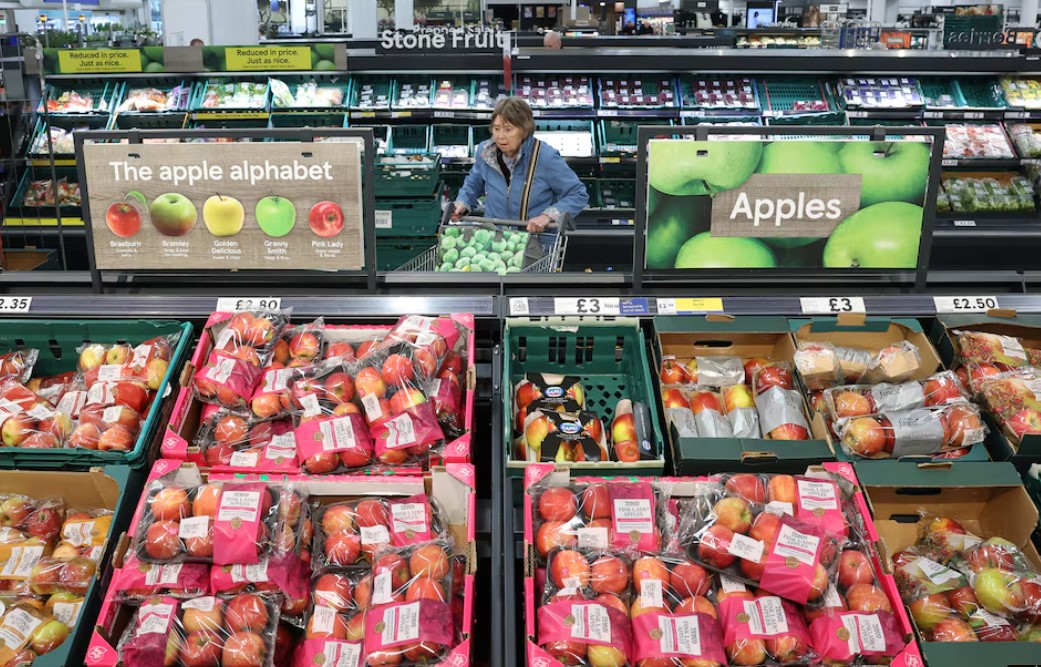Tesco (TSCO.L), Britain’s biggest food retailer, warned on Thursday its profit would likely fall this year, blaming increased “competitive intensity” in the UK market and sending its shares down more than 7 per cent.
The group, which has a near 28 per cent share of Britain’s grocery market, said it expected to make adjusted operating profit of between 2.7 billion and 3.0 billion pounds ($3.5-$3.9 billion) in the year ending February 2026. That compares with 3.13 billion pounds in 2024/25, which was up 10.6 per cent on the prior year.
Prior to the update, analysts had on average been forecasting a 3.2-billion-pound profit for 2025/26.
Tesco said its guidance gave it the “flexibility and firepower to be able to respond to current market conditions.”
“We see further opportunities to protect and strengthen our competitiveness,” it added.
Shares in Tesco, which had fallen 11 per cent since rival Asda said last month it would sacrifice profit to cut prices, dropped more than 7 per cent in early trade to a nine-month low. In contrast, the FTSE-100 index was up over 4 per cent after the US tariffs pause.
Asda, Britain’s third largest grocer, said it would take a hit to profit to finance a major campaign of price cuts aimed at reversing a slide in market share.
“The announcement we’re making today is from a position of strength … Whatever the competitive environment and whatever comes our way, we’re capable of dealing with it,” Tesco CEO Ken Murphy told reporters.
Analysts said that while Tesco’s forecast would give it the capacity to respond to market conditions, it would nevertheless be taken negatively by some investors.
But analysts doubt Asda’s move will spark a price war.
They say Tesco’s strategy of matching the prices of discounter Aldi on key items, together with its Clubcard loyalty scheme, which provides lower prices for members, is working, delivering a market share not seen since 2016.
“Whilst there is no price war at present, Tesco is giving the market a clear statement that it is up for a fight,” Shore Capital analyst Clive Black said.
Tesco is also facing a jump in costs in 2025/26 due to higher social security payments imposed in the Labour government’s first budget last October, a hike in the national minimum wage and a new packaging levy.
The increase in employer national insurance payments will cost Tesco about 235 million pounds, while a 5.2 per cent pay rise for store workers will cost 180 million pounds.
Tesco also announced a further share buyback totalling 1.45 billion pounds to be completed by April 2026.
The group’s sales rose 3.5 per cent to 63.6 billion pounds in 2024/25, with like-for-like sales up 3.1 per cent.






Click here to change your cookie preferences